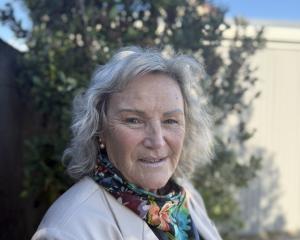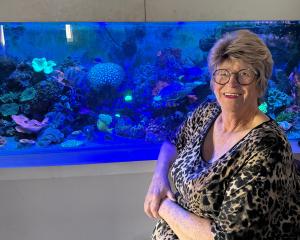
"The fact that Pakeha, middle-aged males are over-represented in our council, indicates that there are still obstacles to other sorts of people standing for election, getting elected, and voting in elections too," she says.
Of the 15 Dunedin City councillors, only four are women.
"It is not just women who are under-represented. It is youth, Maori and other ethnic groups also," says Dr Hayward, whose research covers such questions.
"Only nine of the 47 candidates for the elections were women but the good news for women is that nearly half of those who stood, got elected.
"So the barrier for women is not in getting elected, but rather in getting more women to stand for council.
"If half the candidates are women, they stand a good chance of also being half of the elected representatives."
Another who has looked into women's under-representation in local government is Dr Jean Drage, a lecturer in the school of social and political studies at the University of Canterbury.
"Local government is based on the concept of representative democracy and for it to be fully representative and democratic, councils need to include the voices of all its population," Dr Drage says.
"If women make up 50% of that population, then it is only fair and right that the council should be made up of 50% women."
Ms Drage says the decline in the number of women elected around the country this year was partly due to the loss of council seats with the creation of the new Auckland City Council and partly because fewer women were standing.
"For example, of the 263 mayoral candidates standing across the country, only 47 were women. In the 2004 and 2007 elections this number was 58 women. In 2001 it was 68."
She says the decreasing interest in standing is related to:
• the changing nature of the high workload, full-time positions
• the reduction in mayoral positions (six mayoralties were lost in the Auckland restructuring)
• the greater competition for these more influential positions (there were 22 candidates for the Auckland mayoralty, 14 in Christchurch, nine in Porirua, eight in New Plymouth and seven in Dunedin - all elections won by men)
• and the prohibitive cost of standing.
"On all city councils and larger district councils, the job for councillors has become full-time (and that is not 8am to 5pm) so it attracts those who can work these full-time hours and don't have too many other responsibilities.
"This means that our councils are mainly older, white, middle-class men (2007 statistics show 4% of those elected are under the age of 40 so that means 96% are older than 40 years. Also only about 3.6% identify as Maori so once again, a serious lack of diversity here).
"And while we see women in about 28% of elected positions, this percentage has not increased in this millennium."
Dr Drage says little is being done to address the issue.
"The Human Rights Commission does a good job of highlighting the problem but there is little else being done.
"There also used to be women in local government meetings, networks and considerable debate about the need for more women but this is now not occurring either.
"There is clearly a (false) perception that women are already there in sufficient numbers, a perception founded on the fact that we have had several high profile, progressive women mayors and councillors (Dame Sukhi Turner in Dunedin being one).
"The Local Electoral Act of 2001 provided councils with the option of using STV as a way of increasing proportionality in local councils but only six councils used this electoral system in 2010. This Act also provided the option for councils to establish Maori wards to get more Maori in decision-making positions on councils but this option has not been taken up - remember the enormous focus on this in Auckland last year."
She says there are things that could be done.
• "A review of the Local Electoral Act is timely. It is clear that only one electoral system is needed for local government elections so we need to have that debate on proportionality again.
• "A New Zealand women in local government association could be established (similar to those set up in Australia and Canada) to provide support for women councillors and to highlight the issues around numbers, etc.
• "Maybe, even a fund established to support women standing for council."














